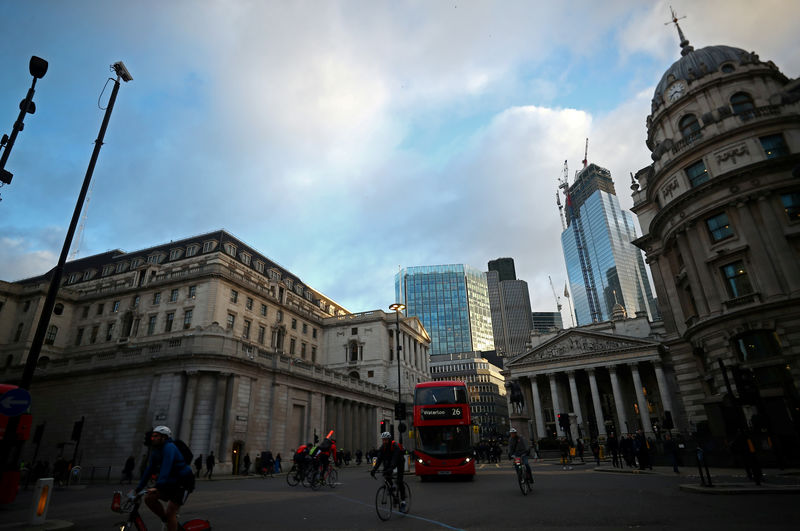LONDON (Reuters) - British inflation rose last month by less than investors and the Bank of England had expected but still hit its highest level this year, pushed up by a rise in energy bills.
Consumer prices rose at an annual rate of 2.1% in April after a 1.9% increase in March, the Office for National Statistics said on Wednesday. A Reuters poll of economists had pointed to a rate of 2.2%, the same as the BoE's forecast.
A recent weakening of inflation, combined with the lowest unemployment rate in 44 years and rising wages, has taken the edge off the uncertainty about Brexit for many households whose spending drives Britain's economy.
But starting in April Britain's energy regulator increased a price cap on energy providers by 10% and all big six suppliers raised their standard prices by the same amount -- something the BoE said would push inflation above target briefly.
Electricity and gas prices were the biggest driver of inflation last month, the ONS said. Computer game and package holiday prices helped to offset the impact of the higher bills.
Britain's modest rate of underlying inflation is helping the BoE to hold off on fresh interest rate hikes while it waits for the outcome of Britain's Brexit impasse.
The ONS figures also suggested less short-term pressure in the pipeline for consumer prices than expected.
Among manufacturers, the cost of raw materials - many of them imported - was 3.8% higher than in April 2018, much less than the 4.5% rise predicted by the Reuters poll.
Manufacturers increased the prices they charged by 2.1% last month compared with 2.2% in March, slightly less than forecast.

The ONS said house prices in March rose by an annual 1.4% across the United Kingdom as a whole compared with 1.0% in February, marking the first increase in house price inflation since September. Prices in London alone fell by 1.9 percent, a smaller drop than in February.